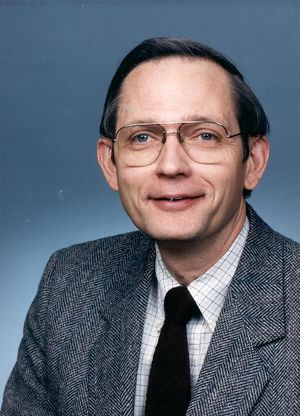Ronald W. Schafer: Difference between revisions
No edit summary |
No edit summary |
||
| Line 11: | Line 11: | ||
[[Oral-History:Ron Schafer|Ron Shafer Oral History]] | [[Oral-History:Ron Schafer|Ron Shafer Oral History]] | ||
[[Category: | [[Category:Signal processing|Schafer]] [[Category:Digital signal processing|Schafer]] | ||
[[Category: | |||
Revision as of 19:34, 21 February 2012
Biography
A contributor of some of the earliest research concerning digital signal processing (DSP), Ronald W. Schafer helped shape the field and has continued to impact it throughout his career. Dr. Schafer’s contributions began in the late 1960s when he helped develop the “complex cepstrum” for speech processing. The methodology of “cepstral analysis” led to the one of most important representations of speech for automatic speech recognition applications. It is also an important tool for processing seismic data, biomedical signals and audio. Dr. Schafer played a role in developing many of the classical concepts associated with signal processing algorithms and digital filters, such as multirate interpolation, short-time Fourier analysis and synthesis and the chirp z-transform. He also explored nonlinear processing based on mathematical morphological operators, which became an important part of image processing applications, and led efforts concerning digital image restoration. In 1974, Dr. Schafer joined the Georgia Institute of Technology, Atlanta, where he helped create the Center for Signal and Image Processing (CSIP), one of the most prestigious academic signal processing laboratories in the world. Under his leadership the faculty grew from two professors to more than a dozen of the world’s leading minds in DSP. Over a 30-year academic career, he introduced thousands of students to DSP; co-authored six widely used textbooks, and supervised graduate research in speech, image, biomedical and communication signal processing.
An IEEE Life Fellow and a member of the National Academy of Engineering, Dr. Schafer is currently an HP Fellow in the Multimedia Communication and Networking Laboratory at Hewlett-Packard Laboratories, Palo Alto, Calif.
